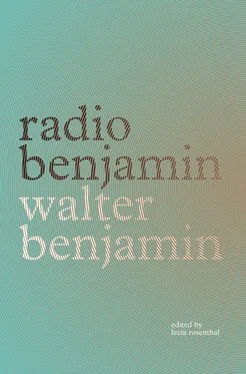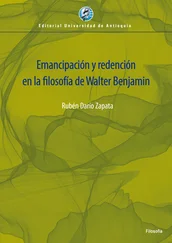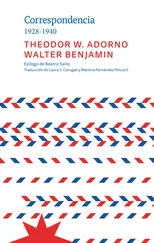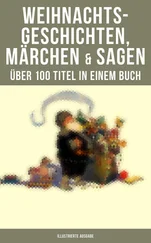But their superiority has already provoked much hate and persecution. First from the church and the authorities, because puppets can so easily mock everything without being malicious. They take the greatest of men and mimic them, as if to say: “What man can do, so can any puppet.” In old Austria, for example, they ridiculed the tyrants. But then at times they made for dangerous competition for the proper theater, as in Paris, where the actors didn’t rest until they had chased the puppets from the city center to the farthest reaches of the metropolis.
It’s widely known that the great puppet-masters were true originals. First off, they live for their puppets; nothing else matters to them. Which is why they live to such an old age. Munich’s Papa Schmidt reached ninety-one. And the renowned puppeteer Winter, who ran the Cologne puppet shows where the Kasper figure is called “Hänneschen,” lived to be ninety-two. 5Secondly, to be a puppeteer is to be a member of a kind of secret brotherhood. The skills of the trade are passed from father to son. The routines are learned by imitation and memorization, so the puppeteer always carries all of his stories in his head. Every one of them must swear an oath that he will never commit to paper even one line of the text, so as to prevent it from falling into the wrong hands and jeopardizing their livelihood. At least that’s the way it used to be. Today many puppet plays are available in print, but the best ones are surely the unpublished ones that children and puppeteers create themselves. Of course there are exceptions, like the wonderful Kasper comedies by Count Pocci, which are still performed everywhere. 6There was once a great puppeteer named Schwiegerling. I saw the Schwiegerling Marionette Theater myself in Bern in 1918, but then it was never read or heard of again. It was more beautiful than anything you could imagine. Schwiegerling invented the so-called “transformation puppets,” or “metamorphoses.” His marionette theater was actually more of a magician’s den. There was only one performance each night. The puppet art was on display prior to the show. I can still remember two of the numbers. Kasper comes dancing on stage with a pretty lady. Then suddenly the music turns very sweet and the lady folds up, transforming herself into a balloon that Kasper, out of love, grasps onto, carrying him off into the sky. For one minute the stage remains empty, and then Kasper falls from above with a frightful crash. The other number was sad. A girl, who looks like an enchanted princess, is playing a sorrowful melody on a barrel organ. All at once the barrel organ folds in on itself and twelve tiny little doves fly out. Then the princess, with her hands held high, sinks dumbfounded into the ground. And just as I’m telling you this, another memory from the show comes to mind. A tall clown stands on the stage, takes a bow and begins to dance. During the dance, out of his sleeve he shakes a small dwarf clown who’s wearing the same red and yellow flowery clothes as he is. And then with every twelfth measure of the waltz, a new one slides out, until finally there are twelve identical dwarf or baby clowns dancing around him in a circle. 7I know this sounds unbelievable, but it’s true. On a different puppet stage the main attraction was a soldier, who blew tobacco smoke from his mouth. A rival of Schwiegerling in Hamburg put on The Beheading of Saint Dorothea, and, during the applause after the beheading, reattached her head so she could be decapitated all over again. The same Hamburg puppeteer always gave his Kasper a dove, while a rabbit would appear alongside his Viennese Wurstl and a cat with his French Guignol, which is Kasper’s name in France.
But now back to Berlin. Another time I’ll tell you more about puppets, but meanwhile you can pick up a copy of Storm’s Paul the Puppeteer, which tells of one of the great original puppet-masters. 8We still hear of a puppet show, a silent one, which used to be performed in Berlin around Christmastime. It’s actually a secular Berlin variation on the South German nativity scene, and it’s called “Theatrum mundi,” or “Theater of the World.” On stage you would see various, parallel-running depictions of daily life, separated from one another by simple set pieces and continuously moving along invisible rollers. Wild game pursued by hunters and hounds; wagons, riders, and pedestrians; grazing cattle; steamships and sailboats; a train; boys scuffling about — everything came again and went in set intervals. It was a sort of mechanical forerunner to today’s cinema.
And finally, tableaux vivants, but performed by puppets. For example: “The Three Men in the Fiery Furnace,” “The Lisbon Earthquake,” “The Battle of Zorndorf,” “The Casino in Baden-Baden,” “The Discovery of America.”
And now, to conclude, let’s hear how the compère, a true Berliner of course, explains the scene to the children of Berlin: “Here we have a very interesting group. The song of ‘The Three Men in the Fiery Furnace.’ This one’s exceptionally beautiful and the flames are quite beguiling. In the middle of the furnace stand three men wondering why they’re not drenched in sweat; over there in the corner is the cruel King Nebuchadnezzar ordering a basket of peat to be thrown onto the flames, and shouting: ‘I’ll break you yet!’ But the three men take not a bit of notice, and start singing instead: ‘Be ever true and constant too, until your chilly grave.’ At this bit of impertinence the king becomes nasty and, to anger him even more, one of them sticks his head out the door and yells in a booming voice: ‘Be so good as to shut your royal trap!’ ”
Or here’s the discovery of America: “First, we have Christopher Columbus standing before you in the midst of his invention of America. The sky, you may notice, is rather gloomy, but the sea is calm, almost indifferent to the event. Columbus’s crew are alternately running around the deck shouting ‘Land ho!’ and hugging one another, or dropping themselves at his feet. He, however, leans calmly against the mast, pointing in front of him and saying in a serious voice: ‘That is America!’ Far in the background you’ll notice the peaks, the stretch of green where the waves are breaking, and a naked man standing there in a fig leaf. This is America’s lookout. As soon as he spots the great ship, he shouts in his mother tongue: ‘Who goes there?’ To which Columbus replies: ‘My good friend, I call myself Columbus.’ ‘What do you want here?’ asks the New Worlder. ‘Simply to discover.’ ‘Look no further’ says the native, saluting by placing two fingers on his head. ‘Come closer, for a long time now we’ve wanted to be discovered.’ And this is how America was discovered, which is now a republic that for a number of reasons I cannot recommend. As soon as this republic gets a king, it will be a monarchy; that’s just the way it is.”
And with this nice speech, we’re finished for today. Hopefully we can begin next time with one just as nice.
“Berliner Puppentheater,” GS, 7.2, 80–6. Translated by Jonathan Lutes.
Broadcast on Radio Berlin, December 7, 1929. Benjamin dated the typescript December 7, 1929, and for this date the Funkstunde announced an untitled “Youth Hour (Berlin) with Dr. Walter Benjamin at the microphone, “from 5:30–6:00 pm.
1Josef Leonhard Schmid (“Papa Schmidt”) (1822–1912) was a founder of the Munich Marionette Theater.
2For this reference, see also Benjamin’s “Altes Spielzeug,” GS, 4.1, 513 (“Old Toys,” SW, 2, 99; originally published in the Frankfurter Zeitung on March 21, 1928). There, Benjamin mentions the poster as part of his review of an exhibition of eighteenth- and nineteenth-century toys, which he admired for having included “not just ‘toys,’ in the narrower sense of the word, but also a great many objects on the margins” (“Old Toys,” 98), such as this poster, as well as other occasional texts and advertisements.
Читать дальше












